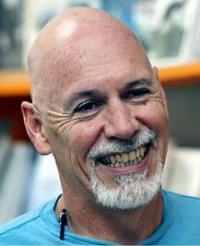The following post was written by Global Exchange Co-founder Kevin Danaher.
—
There is a broad range of opinion about Cuba here in the United States. Some people think it is one big prison. Others think Cuba is further down the road to sustainability than the United States. That range of opinion is also present in Cuba: there are people who love their system, people who hate it, and many in between.
This is not to say that Cuba is not a threat. It is. But it is not a threat against the United States per se; it is a threat to the elites who run our country. If millions of people from the U.S. were to visit Cuba and see free neighborhood medical clinics where the nurse and doctor live in apartments above the clinic and go out on house visits every afternoon, the visitors might think, “why don’t we do that?”
Cuba has many problems as a poor nation under the thumb of the most powerful country in the world. But Cuba also has things we can learn that have application at home. For example, the first time I visited one of the many elder centers where neighborhood elders hang out with each other, playing checkers, exercising, and getting regular checkups by the doctor and nurse on the staff, I noticed an abundance of young children playing with the elders. When asked the director of the center who organized these children to be there he said, “These are just neighborhood children who come in and out as they please.” Try to find an elder center in the United States where that happens.
The Cubans may be recycling everything and promoting urban agriculture because they are poor and have to conserve resources. But when you are on a huge farm in the middle of the capital city, Havana, and see crops spreading out toward the horizon, you are convinced of the rightness policies that promote sustainability.
Global Exchange has been organizing group tours to Cuba for 24 years, so we are well acquainted with the pluses and minuses of Cuban socialism. The best way for you to cut through the debate over US policy toward Cuba is to go there and see for yourself.
What I learned the first time I went to Cuba in 1979—and many, many times since then—is that our role is NOT to tell Cubans how to run their society. No, it would be much more appropriate for us to focus on changing our own society, especially the economic embargo our country has imposed for over 50 years against a small Caribbean nation that NEVER harmed the United States.

